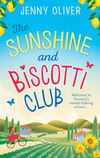Kitabı oku: «The Most Wonderful Time Of The Year», sayfa 3
‘Just one drink?’ said Abby, sensing weakness.
What was it her mum had said when she’d tried to leave the Brownies, gym club, pony club? Just give it one more chance, for me.
‘OK, I suppose one drink.’
‘Excellent.’
CHAPTER FIVE
Everyone in the bar was so confident in their skills. Ali was sipping a demi pression and half checking out his reflection in the mirror behind them, pushing a hand through his neatly styled black hair that was so heavily waxed it sprang back into the exact same position as before it was touched. ‘I’ve always known about flavour,’ he said, tearing his eyes from the mirror and looking at each of his fellow contestants. ‘That’s my thing. I’m just worried he’s too traditional for me. That we won’t be able to express ourselves.’
Marcel was feeding coins into the fag machine. ‘You must master the basics before you can express yourself properly.’
‘You sound like Chef,’ snorted Abby.
‘There are worse people to sound like.’ Marcel shrugged. ‘In his time he was the best. The greatest. My family, they had all his books. His restaurant had queues out the door. I ate there once and I’ve never forgotten it. The food was exquisite. Like nothing I have tasted before. And then—’ he blew a raspberry through closed lips ‘—nothing.’
Ali went on as if he hadn’t heard anything else that had been said. ‘It’s been since uni—I used to be in the Chemistry lab making cherry essence rather than recreating photosynthesis. I’m like a flavour alchemist.’
‘And you don’t think Chef is?’ Marcel rolled his eyes heavenward behind Ali when he didn’t even register the comment and leant against the cigarette machine, unwrapping the cellophane on his packet while Ali waffled on a bit more about the chemistry of taste.
‘Did you know about Lacey?’ said Abby, cutting in.
‘No, what?’
Heads crowded together over the table; Cheryl knocked over the sugar shaker. Rachel stayed sitting back and looked away at the posters of famous film stars like Clark Gable and Brigitte Bardot that lined the walls, not wanting to hear that much more. She was finding it all too stressful, the notion of competition and the obvious desire in everyone to win. It had been a long time since she’d put herself in a position where she could be judged and it made her feel more vulnerable than she’d imagined.
‘Big businesswoman. Thirty years CEO of a luxury goods company. Jacked it all in for this.’
‘Really?’ George was shocked.
‘Apparently.’ Abby nodded.
‘Goodness,’ said Cheryl, quietly.
‘And how about you?’ Ali turned to Cheryl, who was pouring more red wine from the carafe on the table as unobtrusively as she could. ‘How did you get into this?’
Cheryl blushed, placing the carafe back on the table and toying with the cuffs of her jumper. ‘Same as everyone.’
‘Oh, no, love,’ said George, his accent thick Yorkshire. ‘We’re all different.’
Cheryl had a neat red bob, perfect, as if it had been cut with a set square. Rachel watched her flick it so it covered more of her face. ‘I used to be a bit bigger.’
‘I understand.’ Abby patted her on the arm.
‘How big?’ asked George.
Rachel made a face across the table, trying to encourage him to be a bit more tactful with his questions.
‘Pretty big,’ said Cheryl, blushing again, her hair getting further over her face. ‘To lose it I had to relearn about food. Learn to cook.’
‘But all them cakes—aren’t you tempted?’
She shook her head. ‘I make them for my family, or for the neighbours. It’s the baking that hooks me. I just love it and for some reason I’ve found that if I make it, I don’t eat it.’ She laughed for the first time.
Everyone smiled but Rachel saw Ali do a little eye-roll behind his beer to himself. As if Cheryl was easy pickings.
‘I’ve got to go,’ she whispered to Abby.
‘Really? No. Don’t go. We’re getting to know each other.’
The last thing Rachel needed was these probing, nosy questions and people sizing her up as competition. ‘Yeah, I really should go.’
‘Will we see you tomorrow?’
‘No.’ She shook her head. ‘I don’t think so.’
Rachel walked to the bus stop and when the bus didn’t come she walked back all the way to her dingy flat. There was thin drizzle in the night air, the droplets flecking in the beam of the overhead lights. All the narrow streets were lit with Christmas stars that had been twined up the lampposts and tinsel hung from windows and around doors. Outside the churches little nativity scenes glowed bright, but she barely noticed.
When she got to her building she stopped and looked up—at the blazing light from Madame Charles’s and then to the dark shutters in the roof—and thought of her lovely flat at home. Everything arranged just as she liked it. No surprises. All warm and cosy and hers.
Trudging up the stairs, she wished she were back home—sitting on her lumpy sofa, marking homework with smiley faces, secretly weeping at The X Factor—rather than here, in this draughty loft, baking with a load of strangers.
Inside she boiled up water on the rusty stove-top kettle and sat on the chair thinking about Chef laughing and cycling away. How could she have been so bad? It was gutting. And he was so cruel. She could make bread, for God’s sake. OK, she hadn’t baked it for years, but that wasn’t to say she couldn’t.
Bread was the one thing her hands simply refused to make, as if the dough held too much power in its smells, its texture, its taste—just the simple process of kneading and rolling was like her own personal Pandora’s Box. But she’d always been good at it. Her gran could often be heard lamenting Rachel’s refusal to make her a batch of rolls or a wholemeal. As she thought about it she wondered if Ali, with his flavour combinations, could make a decent loaf.
Damn Chef. He must have weaknesses. No one had come into the workshop and giggled at his past failures, had they?
She leant forward and turned on the oven, watched the flames roar to life through the glass and turned it off again. Then she found herself on her feet taking flour from the shelf, butter she’d got from the Carrefour out of the fridge and breaking eggs into a chipped mixing bowl. Before she knew it she was flouring the worktop and kneading and stretching her dough as if she were on autopilot. Not thinking, just doing. When she looked down and saw the little round blob of dough it almost took her by surprise. She was glad to be able to leave it to prove on the table and got as far away from it as she could, going to the window to stare out at the Champs Élysées view.
She gazed at the perfect strands of fairy lights on the beautifully trimmed trees. It was dazzling—not a blown bulb or twig out of place. But combined with the sweet, sticky smell of raw dough in the air, it all made her suddenly feel quite homesick. Made her think of the monstrous great big tree that they hauled into the centre of Nettleton every year, branches sticking out all over the place. She’d always get needles itching down her back from helping to carry, and Jackie would stand on the church steps, bossing everyone about which side should face front. The great tree would wobble precariously as Mrs Pritchard’s handyman, Kenneth, secured the base and her son tied the top with rope to a lamppost and the old King’s Head sign. She sniggered at the memory of the year they’d forgotten to tie the top and it had crashed through the upstairs pub window at two in the morning almost skewering a pair of sleeping ramblers.
Compared to these Champs Élysées trees, theirs was like the giant at the top of the beanstalk. Too big, hugely ugly and draped with a ramshackle selection of lights that the village had accumulated over the years. Some were big coloured light bulbs, others small maniacally flashing fairy lights that Jackie’s grandmother claimed had given her a funny turn. Around the lower branches the kids hung the snowflake decorations they made at school, all in a big cluster. And on the top was an angel that her gran could remember as a child. It was a disastrous beast. These perfect, beautiful French trees would turn their backs on it in disgust. They would shun the pride and joy of Nettleton.
Rachel had a sudden urge to ask Jackie to text her a photo of it, but stopped mid-message, not wanting her to think she was a pathetic, needy idiot.
Instead the alarm on her phone went off to tell her the dough was ready. In the past she would have plaited plump strands into individual little loaves but this time she just wanted it out of sight and hurled it into the oven, like a hot potato, where it sat off-centre on the baking tray.
There was a knock on the door as she was still staring into the oven trying to work out how there was bread baking in there after so many years of her steering well clear. Surprised, she ran over, oven gloves still on, and pulled it open.
Madame Charles’s housekeeper was standing on the landing, a big basket clutched in front of her paisley-patterned housecoat.
‘Bonsoir, Mademoiselle.’
‘Bonsoir—’ Rachel paused.
‘Chantal.’
‘Bonsoir, Chantal.’
There was silence. Rachel leant by the door unsure whether to invite her in or if she was just about to be told that she’d done something wrong. She wondered whether she should tell Chantal now that she was leaving tomorrow.
‘I bring you some things.’ Chantal held up the basket, then peered round Rachel into the flat. ‘For your room.’
‘Oh.’ Rachel didn’t know what to say. ‘I think I have everything I need. Actually I’m leav—’
Chantal cut her off. ‘Things to make it—je ne sais pas—happy?’
‘Happy?’ Rachel looked down at the bag as Chantal squeezed past her and put it down on the table.
As Rachel closed the door Chantal pulled out two red cushions, a little frayed around the edges, and went and rested them on the sofa, plumping them up with both hands and then pulling the corners straight so they sat beautifully, as they might have once done in Madame Charles’s flat. Coming back to her bag, she took out a strip of thick aquamarine wool and, shaking it out, draped it over the ratty armchair in the corner, tucking it in neatly around the edges of the cushioned seat. Then she stood back, arms pointing to the objects, as if highlighting to Rachel what she was trying to do.
‘Happy,’ she said again.
Slightly perplexed, Rachel watched her go back to her Mary Poppins basket and pull out a mirror with pink china flowers across the top. Pointing to a chip, Chantal rolled her eyes and said, ‘That Madame Charles throws away.’
Next came a spider plant that she carried through the alcove and sat on the window sill alongside a tiny snow-globe of the Eiffel Tower; this she shook and held out to Rachel.
‘I buy this for you.’
Crossing the room, Rachel picked the ball of plastic out of Chantal’s hands, lost for words. When she shook it she noticed her hands were shaking as she watched the snow fall gently round the spire—twisting and swirling round the miniature statue.
‘You shouldn’t have,’ Rachel said, transfixed by the globe and the kindness of the gesture.
Chantal shrugged. ‘I think of you up here alone in this—’ she glanced around ‘—this place and I think that it is not comfortable, especially at Christmas. My daughter, she is about your age and if she was here I would want someone to make her comfortable.’ Chantal folded her arms across her chest.
‘Does she live in Paris?’ Rachel asked, turning the globe upside down again and watching the flakes tumble past the spire of the tower.
‘Oh, no.’ Chantal shook her head. ‘She is in the South. In Nice.’
Rachel looked up. ‘I love Nice. I went on holiday there a couple of years ago. Such a beautiful city. How lovely that you can go and visit her there.’
Chantal seemed to hug her arms a little closer round her chest. ‘I have not been.’
‘Oh,’ said Rachel. ‘She comes to see you?’ she asked and then kicked herself when she realised she’d missed the tension in the comment and should have just changed the subject.
‘Non.’ Chantal turned to look around the room, and then with a forced casualness said, ‘We do not speak any longer.’
‘I’m sorry.’
She waved a hand as if it were nothing. ‘She has a strong will.’
Rachel nodded, immediately curious as to what had happened.
‘Anyway, I think of her when I think of you up here, and I would want her to be comfortable.’ The oven timer pinged and Chantal, taking it as a cue to change the subject, wandered over, peered in through the oven door and, smelling the freshly baked bread in the air, she sighed.
Rachel went to place the plastic snow dome on the shelf but changed her mind and kept hold of it as she glanced at Chantal, who seemed suddenly smaller and more alone than she had done when she’d first come in. ‘Would you like some bread?’ Rachel asked.
‘Oh.’ Chantal rested her hands across her waist and stood as if this were what she’d been waiting for all along. ‘If it is not an intrusion.’
Rachel shook her head. If anything it was something of a relief to have someone there with her and Chantal appeared to feel the same way.
A few minutes later the housekeeper was sitting at the table with a cup of tea, smiling through a mouthful of warm, soft bread. ‘C’est très bon. Parfait.’ Tearing off another piece, she said, ‘You make very good bread.’
‘Thanks.’ Rachel hadn’t touched hers; she was somewhere else entirely, overwhelmed by the smell of fresh-baked dough, the sadness in Chantal’s eyes when she talked about her daughter, and distracted by her snow-globe and the red cushions.
‘Yes. It is very good. Très bon. Like the boulangerie at the end of the road.’
Rachel thought again about what her mum would say if she told her she was going to quit the contest: One more chance. For me.
‘You compete, oui? For the bread? That is the competition.’
‘Pretty much. With Henri Salernes.’
‘Oh la la, Henri Salernes. Very grand. Whatever happened to him? I had his book. Very good, a very clever man. And his brother, yes? The two of them, they had a lot of skill. And their restaurant, it was very famous. And now nothing except the pâtisserie, oui? Just a little pâtisserie that no one would know belonged to him. Very sad. Trying to prove too much too young, I think. That is what the papers say if I remember, grew up badly—not a good home, you understand?’
‘I don’t really know that much about the restaurant. Just that he was an amazing baker once.’
‘Oui, once. He was the youngest and the most celebrated. He changed the way we bake. And his brother, he change the way we cook. One was the savoury and one the sweet … Then it all goes, pouf, like that. All the money for Henri on the drink and the drugs, I think. It is always on the drink and the drugs. Silly man. He had a lot of talent. But …’ she held her arms out wide ‘… c’est la vie.’ She popped the rest of her slice of bread in her mouth. ‘Well, if I was the judge, you will win already. You do very well.’
Rachel reached forward and tore a little chunk off the loaf and popped it in her mouth. The power of the taste almost made her crumple on the spot. Soft and warm like a blanket.
One more chance. For me.
‘Very well. Very good bread.’
For me?
OK, Mum. She nearly said it out loud, nodding and holding tight to the globe.
‘You find it better? Yes?’ said Chantal, following her gaze from the snow-globe to the rest of the room.
‘Yes. Thank you,’ Rachel replied. ‘I find it much better.’
CHAPTER SIX
Next morning Rachel arrived at the pâtisserie with all the embroidered flowers that he’d made such a fuss about snipped off her apron, determined to prove to Chef Henri he was wrong about her.
Then she might leave.
The pâtisserie itself was one of her favourite bits about the whole competition. On the ground floor, it was small and unassuming but the counters were piled high with some of the most delicate pastries and tarts she’d ever seen. The glaze on the tart au citron shone as if it’d been freshly polished that morning. The sign on the front of the shop was written in gold and inside an old lino floor was scratched and scuffed where customers had stood waiting in line. To the left of the counter were high stools that seemed to seat the same three old men every day, who came in to drink espresso and eat croissants, and behind the counter was a young woman with bright pink lipstick and wild curly hair pulled into a messy plait, who had introduced herself to Rachel as Françoise the day before when Rachel had been completely lost trying to find the competition kitchen. She’d patted her on the shoulder and wished her good luck in a conspiratorial tone that Rachel hadn’t quite understood until she’d come face to face with Chef.
Now, as she walked in and bought herself a pain au chocolat for her breakfast, when it came time for her to pay, Françoise raised a brow as if to ask if Rachel now understood her words of luck; Rachel nodded, a silent understanding between them about the tyrant boss. Françoise laughed and told her that he didn’t get any better the longer you knew him.
As Rachel left the pâtisserie through the side door that led into the corridor she’d just started to take the stairs up to the kitchen when she came across a man in a suit, who flattened himself against the wall to let her pass.
‘Merci beaucoup,’ she said, not really paying attention, caught up in thoughts about what Chef would say about the fact she hadn’t run back home to England.
‘It is my pleasure,’ he replied as she passed. His perfect English made her glance back. Short, neat black hair, sharp, tailor-made slate-grey cashmere suit, thick, dark eyebrows that drew together now over big brown eyes as he watched her looking at him.
‘Thanks,’ she said again and then felt foolish. ‘I er …’ she started, pointing up the stairs. She felt her cheeks start to get hot and looked away, embarrassed by her reaction to him. He wasn’t good-looking per se, but striking in the kind of way that she just wanted to stare at him for days. Trying to disguise the reddening of her face by pretending she had an itch on her cheek, she turned back and said, ‘I’m going up there.’ A blatantly obvious statement that she couldn’t quite believe she’d just said. She hadn’t been so flummoxed in the presence of a stranger ever. Pull yourself together, Rachel, she thought.
‘So I see,’ he replied with a smile twitching on his lips and before she could reply he held two fingers to his forehead in a salute and turned away, clipping down the stairs.
She watched him leave, pulling on a dark-grey woollen coat as he got to the bottom step before yanking open the door into the icy cold. A lingering smell of expensive aftershave and soap made her close her eyes and consider how well groomed the French were. She breathed in again, trying to catch the scent once more, but it was gone. Running her finger along her bottom lip, she did a flash replay of the momentary conversation in her head, shook her head at her own embarrassingly floundering responses, and found that all she could remember was his eyes. They were espresso dark and dancing with confidence—that last little amused look had knocked her totally off kilter.
‘He is nice, non?’ Françoise had stuck her head out of the doorway and was following Rachel’s gaze.
‘Oh, I wouldn’t know,’ she said too quickly.
‘He is very nice, I am telling you.’
‘Well …’ Rachel shrugged as if it barely mattered because she would never see him again.
‘You are still early, non?’ Françoise said as she wiped her hands on her apron then looked at the paper bag with the pain au chocolat clutched in Rachel’s hand. ‘You should enjoy your breakfast, eat it at the counter with an espresso, mais non?’
‘I shouldn’t really.’
‘Ah, yes, you should. I will have one too. It is quiet. I am bored. I like to have someone to talk to.’
‘But—’ Rachel glanced up the gloomy staircase to the workshop where everyone would soon be gathered waiting to stab each other in the back or wait for the weak to fail. An offer of plain, simple company from Françoise was too tempting to turn down. ‘Go on, then.’
Back inside the pâtisserie, she perched on a stool by the counter as Françoise bashed away with the coffee machine.
‘This thing, it is shit,’ she muttered as she flicked some switches and the thick black liquid poured out into a small white cup rimmed with gold.
‘You sound like Chef.’ Rachel laughed.
‘Fuck no.’ Françoise sneered.
‘And again.’
Françoise laughed. ‘I have worked with him too long. He is a tyrant.’
‘He is, isn’t he?’ Rachel took the espresso cup and saucer from her and declined the two sachets of sugar.
‘No, I am being mean.’ Françoise shook her head. ‘He is OK. I think he suffers from the past.’
Rachel raised a brow in disbelief. ‘I think he’s a tyrant.’
Françoise laughed and then turned her back to Rachel and started doing her hair in the mirrored wall behind the counter. ‘My boyfriend arrives today. From Bordeaux.’
‘Very nice.’ Rachel sipped the coffee, wondering if she should say anything else.
‘I only see him once in the month. He is very—’ She paused, untwisting her lipstick. ‘He is like Chef. He has the hot blood.’ She turned back round to face her, eyes smiling, her mouth pulled into an O as she slathered it with more Chanel Rouge. ‘You just need to learn how to handle the men like Chef. That is all. Do not let them scare you. The anger, the words, it is all air that is hot. Big, hot air.’ She laughed. ‘Underneath is the mouse.’
Coffee finished, Rachel was second to arrive in the workroom. Lacey was already there; she’d watched her stalking up the stairs, and now she was standing alone, polishing her tabletop.
‘Hi,’ Rachel said as she unfolded her knives and put her snow-globe on the bottom shelf of her work surface where Chef wouldn’t see it.
Lacey didn’t reply. Rachel studied her, her loose grey curls pinned into a neat chignon at the nape of her neck, apron covering a three-quarter-length mauve dress with capped sleeves that revealed gym-toned arms. Gold studs in her ears, coral lipstick and glasses hanging on a diamanté chain around her neck.
‘Where are you from?’ she asked as Lacey continued to wipe.
‘London.’
‘Oh, whereabouts? I went to uni in London. I’m from a tiny village in Hampshire.’
‘Look.’ Lacey screwed up her cloth and turned towards her. ‘I don’t want to be rude but I’m not here to make friends. This is a competition and I just want to keep it professional. No games.’
‘Games?’ Rachel looked perplexed.
‘I saw you yesterday with your little flowers getting all the attention. Some of us are here to work. Hard. So … let’s just—’ She held her hands up and then went back to polishing her station.
Rachel couldn’t believe it. ‘I’m not—’
‘You came back. Hurray!’ Abby bounded in with George, unaware of the tense silence in the room. ‘We wondered. We made bets. I said you would.’
‘I thought I’d give it one more go,’ Rachel said, hesitant after her altercation with Lacey.
‘Well, I’m really glad you did. We need to stick together.’ Abby patted her on the shoulder and walked over to her bench.
Over the next five minutes all the others trooped in, with Marcel last. He glanced at Rachel and said, with his smooth French accent, ‘Looks like I lost my bet.’ Then he winked at her just as Chef strode in so she was blushing red as he towered over her station.
‘You are still with us? I thought you run back to England? Non?’
Rachel shook her head. She tried to think of him as the great baker who had lost everything. Of the boy who had grown up too fast. Of the genius who revolutionised French pâtisserie. Last night she had crept down the stairs and perched on the bottom step outside Madame Charles’s flat and, tapping in the code that Chantal had slipped her, had surreptitiously logged into her Internet. There she had spent an hour or so Googling Henri Salernes. The restaurant he had set up with his brother that had taken Paris by storm and made them among the youngest three-Michelin-starred chefs in the country. She’d pored over pages and pages of glowing reviews from even the most hardened critics and pictures of snaking queues out of the door and celebrities huddled in darkened corners sipping champagne.
Then the headlines changed to the shock exit of his brother, who walked away at the height of their fame. And then the steady charting of Henri’s epic rise and fall. The temper that had driven away most of his best sous chefs, the arrogance that had banned negative critics from walking through the door and the gradual loss of his Michelin stars, one by one over the years until there were none.
But just as the articles got juicy, she’d heard the click of Madame Charles’s heels on the stairs and, slamming her laptop shut, Rachel had backed up into the shadow of the landing and watched as her elegant landlady swept into her apartment, the lights glistening, the warmth emanating, and as the door shut the soft lull of some classical music and the ring of the telephone accompanied by Madame Charles’s soft, low voice as she answered the call. Rachel had watched the closed door jealously, reluctant to go back up to her room, especially now she was going back for more of Chef the next day. Wishing instead that the doors to this sumptuous apartment might open up and swallow her whole.
What was it Chantal had said about Chef? Not a good home. Rachel had thought of lovely little Tommy back in Nettleton who’d been adopted by Mr Swanson and his wife two years ago. He’d had not a good home. As he stood in front of her now she tried to imagine Chef at Tommy’s age. Looking up at his stern, miserable face, she tried to picture him as a five-year-old, as one of her sweet little class with trousers too big and jam down his cardigan.
She watched him glance at her apron and take in its absent flowers.
‘Well, we’ll have to see if you do better today, won’t we?’ He smirked.
‘Yes, Chef.’ She nodded. No, it was no good. He just wouldn’t shrink to the size of one of her pupils. He had been born a fully fledged pain in the bum, she was sure of it.
‘I have my eye on you,’ he said as he strode away.
Rachel made the mistake of glancing to her right and saw Lacey raise her brows with disdain.
The day started with pastry. Filo, short, flaky, puff, choux. Savoury and sweet.
‘You know nothing about pastry. Everything you think you know, you don’t know,’ hollered Chef.
All morning they sweated over it. Chef coming over and screwing it into a lump, slapping it across the room to the bin, shouting, ‘Too much flour. Start again.’
Abby cried. George had a coughing fit and Tony cut another finger, rendering him useless for the afternoon’s challenge.
‘After lunch you make me something. I spend the day teaching you, now you give it back to me. I want to see what you have. In here.’ Chef bashed his chest with his fist. ‘Now leave, it is lunchtime.’
Rachel walked out with Abby, both bundled into their coats and scarfs ready for the wintry cold that had hit last night.
‘I’ve left my family at Christmas for this guy. He’s a nightmare,’ Abby whispered as they left the room.
‘You have kids?’
‘Two. Little girl and boy. One year apart. Glutton for punishment, me. I’ve told them I’m off meeting Santa—we need to discuss how good they’ve been this year.’ Pulling out her purse, she showed Rachel a picture—a passport-photo strip in a plastic wallet of two bright blond children, aged about six or seven, could have been younger, and a fun-looking surfer-type guy holding them on his knee.
‘He looks nice.’
‘Doesn’t he? Jane from number seventeen thought so, too. He left last year, bought a boat, said family wasn’t for him, he felt suffocated, and he’s sailing round the world now—with her. Have you seen those boats? If anything’s suffocating I’d say it’s them—can’t even stand up half the time. He sends postcards from places like Mauritius and the kids think he’s all exciting and glam. Not like boring old Mum.’
‘You’re cooking in Paris. That’s glamorous,’ Rachel said, and they both turned to look back up the stairs at the peeling paintwork and blown light bulb and giggled.
Marcel was just jogging down the stairs and gave them a funny look when he passed them laughing. ‘It is something about me, no?’
‘No, not at all.’ Rachel waved a hand to show that it was nothing, that they were laughing at something else.
Marcel shrugged, a lazy grin on his face as he pushed open the door to the street. ‘You could give a man a complex,’ he said, winking as he strolled out and then lighting a cigarette behind hands cupped against the breeze.
‘You could give me anything you want, Marcel,’ whispered Abby dreamily. ‘He’s so pretty, isn’t he? Like a model for Gucci.’
Rachel nodded as they watched him disappear up the road. Marcel was chocolate-box handsome; perfect as if he’d been chiselled from marble and on show in a museum.
‘I find him very distracting,’ Abby mused. ‘I have to consciously not look at him during baking, otherwise I’d be all over the place.’
‘You have to get a grip—’ Rachel leant on the door, letting in a shock of icy air ‘—or he’ll sense your weakness.’
‘Please, God.’ Abby clasped her gloved hands heavenward. ‘Let Marcel sense my weakness.’
Passing the pâtisserie, Rachel saw the guy she’d passed in the corridor earlier standing drumming his fingers lightly on the counter. Same grey woollen coat, same thick dark hair, same instant flutter in her stomach. No one seemed to be serving. She glanced through the window, peering over the gold scrolled lettering that spelt out Salernes on each window, and saw no one except the customer. Where was Françoise? Had her boyfriend arrived already? She glanced from the shop back to Abby and said, ‘Do you think I should go and look for Françoise …?’









